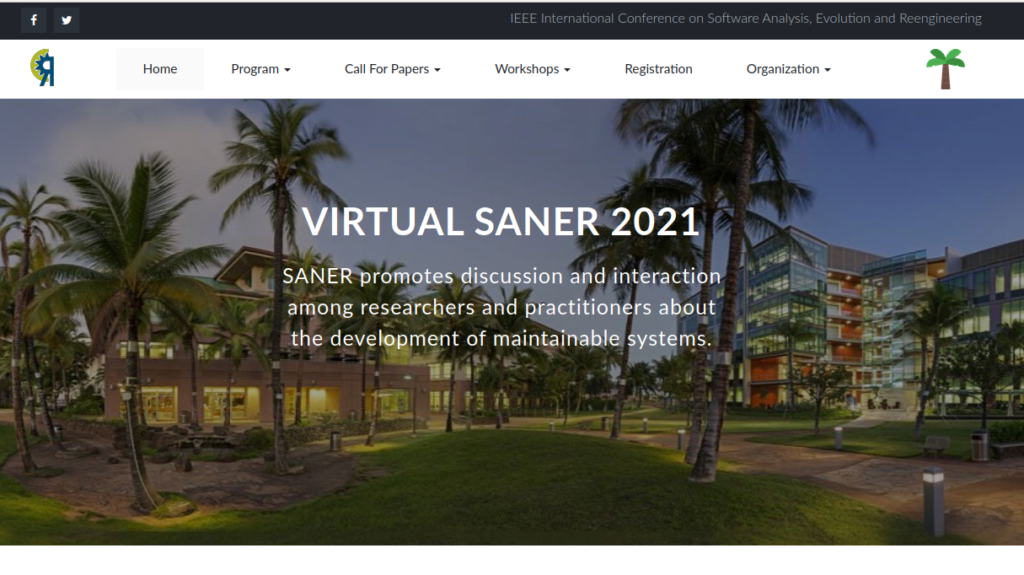This year I was fortunate to present to the 2021 IEEE International Conference on Software Analysis, Evolution and Re-engineering or “SANER 2021.” You can see the write-up of my own presentation on “underproduction” elsewhere on this blog.

SANER is primarily focused on software engineering practices, and several of the projects presented this year were of interest for social computing scholars. Here’s a quick rundown of presentations I particularly enjoyed:
Newcomers: Does marking a bug as a ‘Good First Issue’ help retain newcomers? These results from Hyuga Horiguchi, Itsuki Omori and Masao Ohira suggest the answer is “yes.” However, marking documentation tasks as a ‘Good First Issue’ doesn’t seem to help with the onboarding process. Read more or watch the talk at: Onboarding to Open Source Projects with Good First Issues: A Preliminary Analysis [VIDEO]
Comparison of online help communities: This article by Mahshid Naghashzadeh, Amir Haghshenas, Ashkan Sami and David Lo compares two question/answer environments that we might imagine as competitors—the Matlab community of Stack Overflow versus the Matlab community hosted by Matlab. These sites have similar affordances and topics, however, the two sites seem to draw distinctly different types of questions. This article features an extensive hand-coded dataset by subject matter experts: How Do Users Answer MATLAB Questions on Q&A Sites? A Case Study on Stack Overflow and MathWorks [VIDEO]
Feedback: What goes wrong when software developers give one another feedback on their code? This study by a large team (Moataz Chouchen, Ali Ouni, Raula Gaikovina Kula, Dong Wang, Patanamon Thongtanunam, Mohamed Wiem Mkaouer and Kenichi Matsumoto) offers an ontology of the pitfalls and negative interactions that can occur during the popular code feedback practice known as code review: confused reviewers, divergent reviewers, low review participation, shallow review, and toxic review:
Anti-patterns in Modern Code Review: Symptoms and Prevalence [VIDEO]
Critical Infrastructure: This study by Mahmoud Alfadel, Diego Elias Costa and Emad Shihab was focused on traits of security problems in Python and made some comparisons to npm. This got me thinking about different community-level factors (like bug release/security alert policies) that may influence underproduction. I also found myself wondering about inter-rater reliability for bug triage in communities like Python. The paper showed a very similar survival curve for bugs of varying severities, whereas my work in Debian showed distinct per-severity curves. One explanation for uniform resolution rate across severities could be high variability in how severity ratings are applied. Another factor worth considering may be the role of library abandonment: Empirical analysis of security vulnerabilities in python packages [VIDEO]
Discover more from Community Data Science Collective
Subscribe to get the latest posts sent to your email.